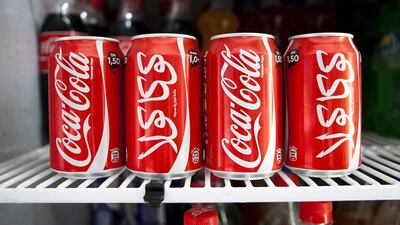ABU DHABI // Retail experts and consumers say they do not expect drastic changes in shoppers’ behaviour after new taxes are implemented in the UAE.
A value-added tax of 5 per cent will be enforced in the GCC next year. Separately, excise duties on tobacco, fizzy and energy drinks, and other goods that have not been specified are expected to take effect this year.
The excise tax could be up to 100 per cent of an item’s value, said Obaid Al Tayer, Minister of State for Financial Affairs, on Wednesday as the Federal National Council passed a law regulating taxation.
Mohamed Hafez, a chartered accountant, said that while the VAT law and executive regulations have not yet been announced, he speculated that it could have a limited effect on UAE spending patterns considering the high average income per person.
However, while there could be a limited effect on consumption rates for the taxed goods, consumers could avoid buying non-essential items they would have otherwise purchased, he said.
“They will probably control telecommunication expenses as well, since 5 per cent will also be added to the bill,” said Mr Hafez.
Consumers might try to avoid paying VAT by shopping online on websites based outside the GCC, he said.
“The good news in the UAE is that the levied 5 per cent is very reasonable compared to other countries,” said Mr Hafez.
If the VAT law includes a convenient refund option for non-residents, it will not affect purchases made by visitors, especially if prices are reasonable, he said.
In general, he said, VAT will ultimately be paid by the consumer and not by businesses, because wholesalers paying 5 per cent at the border will have the amount returned from the retailer, who then collects it from the consumer.
Hala Entabli, a makeup artist from Syria, said she would quit smoking shisha if a 100 per cent excise duty was imposed on tobacco.
She buys tobacco for shisha pipes in kilograms at Dh50 per kilo. If the price is raised to Dh100, the 24-year-old said, it will be too much.
“I need two packs a month and before I travel I take five kilos with me,” she said. “I’d quit because even if I decide to start storing packs now, they wouldn’t fit in my house.”
Mohammed Elmatboua, who owns a decor company, said he would quit smoking his medwakh pipe if the excise tax is levied.
“I buy the pack for Dh35 every two days. If it becomes Dh70, that is a lot,” said the 39-year-old from Morocco. “Or I will try to cut back.”
hdajani@thenational.ae


